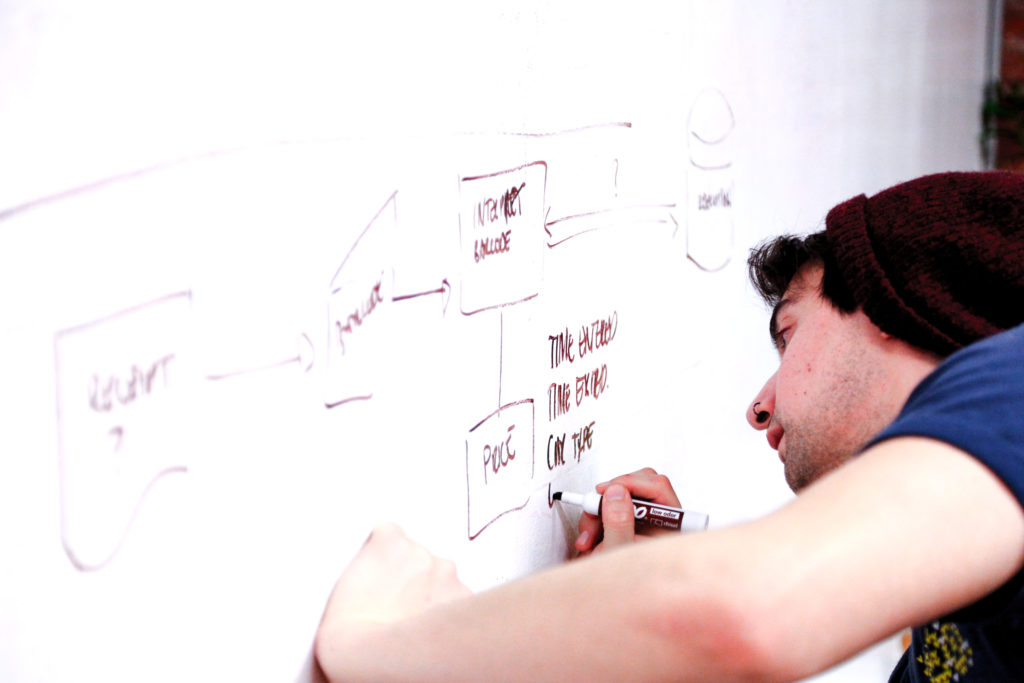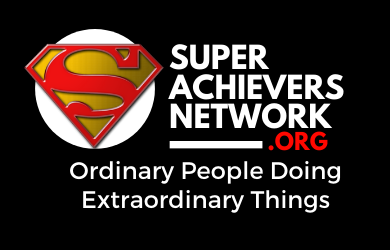Single Ideas That Make a Difference
“Everything begins with an idea.” – Earl Nightengale
“Take up one idea. Make that one idea your life. Think of it, dream of it, live on that idea. Let the brain, muscles, nerves, every part of your body, be full of that idea, and just leave every other idea alone. This is the way to success. That is way great spiritual giants are produced.” – Swami Vivekananda
An idea can change or create an industry, and in some cases, change the world.
• “We’ll have a computer on every desk around the world.”
• “We’ll capture an image on film and print it on paper.”
• “We’ll record sounds.”
• “We’ll create an electric light bulb that will make the nights as bright as the days.”
• “We’ll ask people to donate blood and we’ll separate out the plasma so we have ways of helping people in the short term when we don’t have a match for their blood type.”
• “We’ll create minimally-invasive surgical tools to fix muscles, tendons, and hearts without tearing the person’s body open.”
• “We’ll create a way for people to communicate electronically between computers.”
Pause here for a moment. Write down five ideas you have seen change or create an industry or even change the world.
Between my career and my volunteer activities, I have interacted with people from kindergartners to CEOs of large corporations and virtually every age group and life situation in between.
In other words, I’ve spent my life being with people.
One thing I’ve noticed consistently is that many people doubt themselves. They doubt the power of their own insights.
They seem to think that a great idea always comes from someone else.
Often, it was simply the desire to carry the idea all the way through from creation to completion.
And why does one person create and complete the idea while another discards a potentially great one?
I think it’s because the former values his or her ideas while the latter does not.
In order to actualize an idea, we have to believe that our ideas have value.
In 1905, Albert Einstein wrote four ground-breaking papers that changed the world of physics forever, while he was working as an assistant examiner in a patent office.
He was 26 years old. How is that even possible? It has been called Einstein’s Miracle Year.
It may help for you to know that he had been working on these ideas, and discussing them with other people for at least 10 years before he published the papers.
After 10 years of intense study and discussion, the insights came to him in a rush.
However, if you study the story behind the story, you almost always find that the person had been studying the topic intensely for many years before the “new idea” popped into his or her mind.
In order to generate a single great idea, you need to fill your mind with a lot of useful ideas before the magical moment happens when two or more ideas merge into one powerful concept that you can leverage into something bordering on miraculous.

The Mindset We Need Regarding Great Ideas
Carve Out Time and Space for Ideas to Grow
Think of ideas like a garden. In a garden you start with a defined area that has its soil conditioned and ready to plan seeds. These seeds are then planted, watered, and nurtured to get the maximum yield for you efforts.
It takes time and a process of multiple steps to get the garden to grow. And ideas are the same. The garden is your mindset about creating and growing great ideas. When they come to mind, it comes as a seed with the potential of developing into fruit, but it takes a process to get it to the finish line.
The process takes time even though you have a great idea. Don’t worry about having to develop a great idea within a certain time frame. Just let it develop in its own time. Be patient, and keep working on it.
Work with a sense of passion, purpose and urgency. Working as fast as you can with as much passion and purpose as you can muster.
Stop imposing deadlines on your greatness. It might happen at 26 and it might happen at 66. What difference does it make?
Keep feeding your mind, believe in the value of your ideas, and be ready for that big idea when it comes.
It may come to you in an instant, or piece by piece. Some ideas can come to you in a completed form, ready for you to take off with it. Others my come as just a simple concept that needs refinement.
Either way, just let the magic happen. You might just end up with an idea that changes the world, or at least an industry.
Treasure Your Ideas
Next time you are in Washington, D.C., take a trip to visit the U.S. National Archives.
You will see rooms packed with items, exhibits, and even cool computer programs.
But the most impressive room of all is called the Rotunda for the Charters of Freedom.
You would expect to see all types of impressive things that commemorate some of the greatest inventions of all time.
Surprising, the Rotunda features only six pieces of paper displayed all by themselves in such a massive room. These pieces of paper were written over 200 years ago, and are barely legible now.
What is so important about them? Do they contain valuable information about most famous people in the world, or do they contain directions to a hidden pile of gold.
Not so. Contained on this papers is just one single concept:
How to run a national democracy and why it’s so important.
The papers consist of the Declaration of Independence, the U.S. Constitution, and the U.S. Bill of Rights. These are the only things in the most beautiful room in the whole building.
Who would have thought the ideas in these documents would have the power to create the governance of a whole new nation? This shows the power of an idea. It also is an excellent example of how to treat a good idea.

Good ideas are so valuable, and deserved to be treasured. Their impact could be so powerful that they should be looked at as rare diamonds, the longer you perfect them, the more valuable they become.
So the next time you land on a concept and think to yourself, “Wow, this is a good idea,” don’t let your next thought be, “I couldn’t possibly make this thing work. After all it was only an idea.”
Treat those ideas as most valuable, even though they are your ideas. When the good idea comes, nurture it, grow it, and treat is with the importance it deserves.
It may take time to see it through, but it will be worth it.
How To Come Up With Your One Big Idea
Richard Branson has advice: Start by asking yourself what you could do to make your own life better or easier.
“Entrepreneurship in its truest form is about identifying a gap in the market and creating a product of use to fill that hole and make people’s lives better,” writes Branson in a resent blogpost.
“Often the best way to find this gap is to look around you — are there services that could be improved or a product that could make something easier?” says Branson, who is currently worth more than $5 billion, according to Forbes.
You can find your next big idea by solving a small problems first. Just because it’s small doesn’t mean the idea is limited. Small ideas can turn into big innovations.
Don’t have a big idea yet, try one of these techniques.
Deep dive - Brainstorming
The process begins with a deep dive into oneself. Some people equate this to the hobby of spelunking (cave diving). Start by taking a deep dive into the inner caverns of your being. What are you looking for?
The goal is to list your top five values, strengths, skills, and lifestyle goals. Identify these, and we unlock the gate for new ideas to flow.
Another way to understand the person that you are, the Personality tests such as Myers-Briggs and Gallup’s StrengthsFinder (including the new entrepreneurial strengths test) can be helpful in fleshing out some of this detail.
To get even greater insight into your personality strengths is to directly solicit feedback from your personal and professional network. The people you associate with closely, sometimes reveal things about you that you can’t see.
Collect and aggregate the data, and for each of your lists, consolidate similar attributes into buckets until you have only five traits on each list. The conclusions will be crystal clear.
Passion Topics
The next step is to find the areas which you are passionate. This exercise can incorporate subject matter you’ve studied, a skills or talents you have mastered in previous careers, or an activity that’s been a hobby for you. Everything is fair game—so long as you’re passionate about them.
Your list may include similar or diverse skills that may not be related in any way. Put them on the list anyway. The important thing is that you feel energized to promote and solve problems in these areas.

Opportunities
Think about the previous steps as feeding two circles of a Venn diagram. Your next step is to assess where those circles overlap.
In other words, how can you bring your strengths and talents to topics you are passionate about?
Your mission is to open your mind to as many fun, interesting, maybe even wacky ideas that excite you.
In order to immerse yourself substantively in this exercise, it’s necessary to surrender your ideas of what you should do with your life, and instead embrace a childlike wonder for what you can do.
Market Overlay
You now have a list of passions from which to develop a good idea, lets see how we can turn those passions into a great idea.
Start by asking, What problems can you solve for people who share your passions? How can you help make their lives better? That’s where the really good ideas come from.
Reach out to them to verify the validity of your idea, and if you can solve their problems. Also, are they willingness to pay for your solution.
Speak to experienced business people to test your assumptions, and get their feedback. Can they poke wholes in your idea, and of so, can they help you refine the idea into something even better.
This critical thinking will likely generate new derivatives of your original idea that are much more likely to succeed.
The more often you share your ideas and open them up to feedback, the stronger they will become. The more certain you will feel that you have a good idea worth pursuing, the more you will keep developing it.
The #1 Great Idea
Everyone has that one great idea, but it can easily escape the light of day if we don’t recognize it, and develop it.
Even if you don’t know what that idea is at this very moment, the steps in this article can help you generate one. All you need is a willingness to look inside yourself.
When the idea comes, treasure it and nurture it. It may be the very one that changes the world. At lease, it can make someone else’s life better.
One great idea is all it takes.
Where’s yours?

